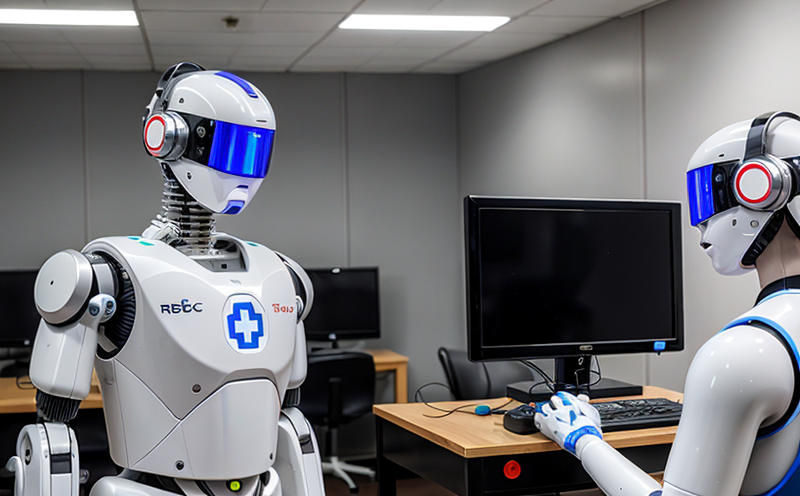ISO 19649 Navigation Safety Assessment of Mobile Service Robots
The ISO 19649 standard is a crucial benchmark in the robotics and artificial intelligence systems testing sector, particularly for mobile service robots. This standard ensures that mobile service robots are capable of safely navigating complex environments while interacting with both humans and other robotic entities. Compliance with this standard is essential for manufacturers aiming to ensure the safety and reliability of their products.
Mobile service robots play a significant role in various sectors, including healthcare, hospitality, logistics, and more. These robots are designed to assist humans by performing tasks such as delivery, cleaning, and patient care. However, the inherent mobility of these devices introduces risks that need to be assessed meticulously. The ISO 19649 standard provides a structured approach to evaluating navigation safety through rigorous testing protocols.
The first step in the assessment process involves understanding the specific requirements laid out by ISO 19649. This includes defining the test scenario, which typically mimics real-world conditions where the robot will operate. The testing environment must replicate these conditions accurately to ensure that any identified issues are relevant and actionable.
The testing itself is comprehensive, covering various aspects of navigation safety. Key areas include obstacle detection, collision avoidance systems, and response to dynamic environments. Manufacturers often use specialized software tools and hardware setups to simulate these scenarios effectively. This allows for precise measurement and evaluation of the robot's performance under different conditions.
One important aspect of ISO 19649 is its emphasis on continuous improvement. As technology evolves, so too must safety standards. The standard encourages ongoing refinement based on new insights and advancements in robotics research. This ensures that even as robots become more sophisticated, they remain safe for use.
Another critical component of the assessment process is the evaluation criteria established by ISO 19649. These criteria provide clear benchmarks against which performance can be measured. Compliance with these standards not only enhances trust but also opens doors to international markets where stringent safety regulations are in place.
In summary, compliance with ISO 19649 is essential for any manufacturer looking to produce safe and reliable mobile service robots. By following the rigorous testing protocols outlined by this standard, companies can ensure their products meet global safety standards, thereby fostering consumer confidence and expanding market reach.
Industry Applications
- Hospitality: Robots used for room cleaning, laundry services, and guest assistance.
- Healthcare: Patient care robots that assist in monitoring vital signs or helping with mobility exercises.
- Logistics: Automated delivery systems within warehouses and distribution centers.
Why Choose This Test
- Comprehensive safety evaluation ensuring robust performance in diverse environments.
- Expert guidance from experienced professionals who stay updated with the latest technological advancements.
- Affordable and efficient testing options tailored to individual needs.
- Detailed reports that provide valuable insights for product development and improvement.
Eurolab Advantages
Eurolab stands out as a leader in robotics and artificial intelligence systems testing, offering specialized expertise and state-of-the-art facilities dedicated to the ISO 19649 standard. Our team of experts ensures that every aspect of your product undergoes thorough scrutiny, ensuring compliance with international standards.
Our advanced technology and experienced personnel offer a unique advantage in providing accurate and reliable results. We pride ourselves on delivering not just tests but also valuable insights that can guide continuous improvement. Partnering with Eurolab means investing in the future of safe and efficient robotic systems.





